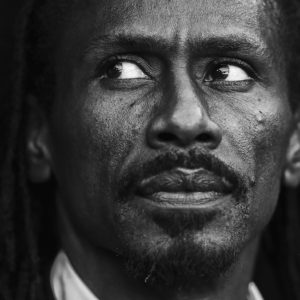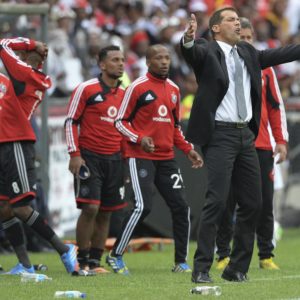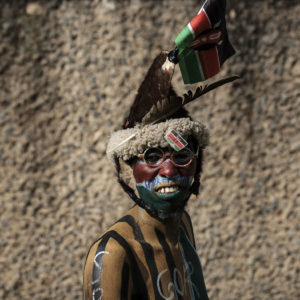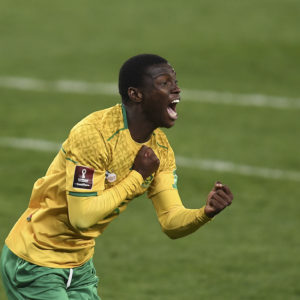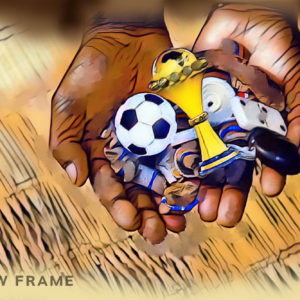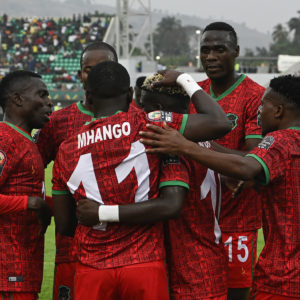The genius of Clive Barker
The only South African coach to win the Nations Cup is renowned for his man-management skills, but there was more to him than that. Those who played for him explain what made him great.
Author:
7 February 2022
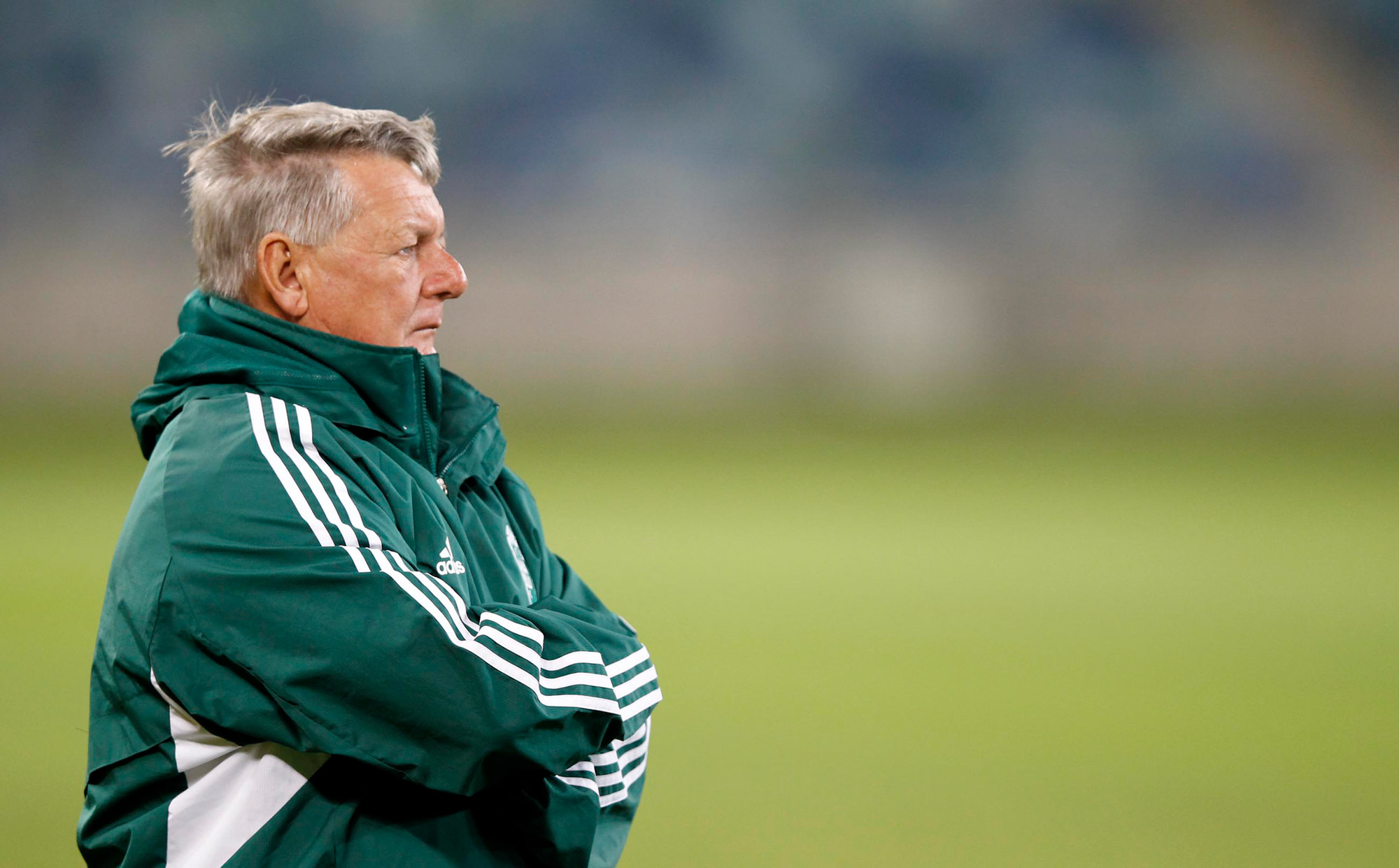
Clive Barker’s genius as a football coach is rooted in something that came naturally to him, his love of South African football and ability to understand and use the country’s diverse culture.
Genius is a word not often used to describe Barker, now 77 and retired, living in Berea, Durban. That he was seen as a spectacular man-manager and motivator, but not tactically astute, irritated the coach who won the 1996 Africa Cup of Nations (Afcon) on home soil and qualified Bafana Bafana for their first Fifa World Cup in 1998.
What not everyone has grasped is that Barker’s genius lay in fusing motivation – and how he understood South African football culture and Zulu culture in particular, as KwaZulu-Natal is where he enjoyed most of his success – with tactics.
What Pitso Mosimane has achieved winning trophies internationally with Egypt’s Al Ahly sets him, the winner of three CAF Champions Leagues and five league titles at Mamelodi Sundowns, apart as easily South Africa’s most successful coach in the modern era. Barker’s longevity and success across eras, and the fact that he’s the only South African to win the Nations Cup, means he gives Mosimane a run for his money as the best football manager the country has produced.
Related article:
Barker also won with unfancied teams. He took league titles at Durban City in 1982 and 1983 and Durban Bush Bucks in 1985, and won the Coca-Cola Cup with AmaZulu in 1992 and the Nations Cup with Bafana. His success continued into the 2010s as he steered Bidvest Wits to third in the Premiership in 2012-2013 and Mpumalanga Black Aces to seventh in 2013-2014.
A talented midfielder for Durban City and Durban United, his career was cut short in 1969 by a second knee injury. At 37, Barker was a babe in the woods when legendary City owner Norman Elliott made him coach in 1982. This was despite him having coached some strong Durban amateur teams and led a fearsome AmaZulu, which included a teenage Mlungisi “Professor” Ngubane who later became the midfield fulcrum of the coach’s Bush Bucks from 1974 to 1976.
A new way of doing things
Barker shocked the establishment. Here was a young coach with fresh ideas, bringing a tough fitness regime and impeccable man-management to a talented City. They gained confidence from each win, snowballing into back-to-back titles.
“City winning again in 1983 I think was a bigger shock in SA terms than Leicester City winning the English Premier League [in 2015-2016],” says Mark Tovey, the central defensive stalwart of that City team and later Barker’s Bush Bucks.
“In 1982 you might have said it was a bit of luck. But to retain it, when those big teams knew what to expect, was special. It was something that shouldn’t have happened, and something not spoken about enough these days.”
Related article:
Tovey says what set Barker apart at such a young age was that “he kept everything simple. He stressed two areas. One, [the] team being the most important. And secondly you needed to be fit, and in both body and mind because we had a lot of inexperienced players who hadn’t played in the Black environment, going to Orlando Stadium and so on.
“Clive’s biggest asset was his man-management, so we had a great camaraderie. He didn’t go much into the intricacies of 4-2-3-1. Just get on the pitch, play as a unit.”
One league to rule them all
City were no slouches. In the 1980s, few professional teams were. Tovey, Dennis Wicks, Brummie de Leur and Lawrence Chelin are names of legend today. A historical connection often missed was that Tovey’s younger brother, Neil Tovey, started as an attacking midfield star in that City team. Mark Tovey, reputedly one of the great South African centrebacks and later a Kaizer Chiefs legend, never tasted international football. Neil Tovey, who followed his brother to Amakhosi, became Barker’s 1996 Bafana captain, lifting the trophy presented by Nelson Mandela.
The amalgamation of the National Professional Soccer League for Black players, National Football League for white players and Federation Professional League for Indian players and those categorised as coloured under apartheid – all strong in their own right – into a single league against apartheid doctrine in 1978 led to an explosion of spectacular football, tragically hidden from the world.
It was in the resultant, super competitive 1980s contests – held in packed stadiums – that the core of Barker’s 1996 side cut their teeth, players such as Neil Tovey, Doctor Khumalo, John “Shoes” Moshoeu, Phil “Chippa” Masinga, Mark Williams and Lucas Radebe. One spectacular side of the era was Barker’s 1985 Bush Bucks, who won the inaugural National Soccer League (NSL) and were regarded as one of the greatest club combinations to have taken to the field in South Africa.
Related article:
When Mark Tovey and Wicks moved to Bush Bucks in 1984, under newly arrived administrator Lawrence “Big Bear” Ngubane, it signalled that something potent was being put together at the traditionally smaller Durban team compared with AmaZulu, City and African Wanderers. The arrival of Barker proved a strong cocktail in a traditionally Black team that had signed a diverse group of players.
It was at Bush Bucks that Barker, having learned certain lessons at AmaZulu in the 1970s, displayed an ability unusual for a white coach at the time of embracing Black South African football culture. Some coaches recognised that muti should not be taken away from players who believed in it, because it played a psychological role. None harnessed it as a weapon like Barker did.
It was a familiar sight at Bush Bucks and AmaZulu to see Barker animatedly spraying a water bottle on the touchline when things weren’t going their way. That it wasn’t actually water treated with muti did not matter to the spectators, who would react with a hum that grew into a roar, lifting the players.
Player by player
Mlungisi Ngubane, one of South Africa’s greatest playmakers in an era that produced destructive entertainers, was instrumental in the building of Bush Bucks. As the big Johannesburg teams attempted to lure him to the Highveld, he preferred to stay in Durban and assemble a competitive outfit around him, influencing Lawrence Ngubane and Barker’s arrivals at a club bolstered by sponsorship from Puma.
“Lawrence wanted me to go to African Wanderers and I said no, Bush Bucks has the potential to become a big team. So he promised he’d come, and in 1983 he did,” says Ngubane.
He started bringing in players like Mark Tovey, Wicks, De Leur, Dave Kershaw, Calvin Petersen, Mike Mangena and Harold Legodi in 1984, adds Ngubane. And Bush Bucks’ 1985 league win was built on their JPS Knockout final against Kaizer Chiefs in 1984, when they lost 2-1 on aggregate.
“In 1985, Lawrence signed left back Stuart Turnbull from Scotland and Raul Gonzalez, the Chilean midfielder, from Swallows.” Their five-against-five training games were like cup finals, says Ngubane. “That’s where I learned to train the way you play. Clive didn’t have much to tell us. The only thing he did was make sure he got the best out of every player.”
Related article:
He singles out Mark Tovey as a true leader. “Mark would talk to me the whole game, ‘Come on Prof, get behind the ball. Prof, you’re fucking lazy.’” Ngubane would score and Barker would call it a fluke. “I would get angry and want to score more the following week. Only later, I realised he was motivating me. If a player was big-headed, he would insult him. If a player was low on confidence, he would tell him he thought he was the best in the world.”
Barker would go to the room of a player who wasn’t performing and tell them “when you’re not performing, this team doesn’t perform”, says Ngubane. “To me it was, ‘Prof, if you don’t jive, nothing happens.’ But he’d tell you separate from the others, then you’d go in there knowing, I don’t want to let Clive down and I don’t want to let the guys down.”
Ngubane chuckles at how Barker embraced muti. “If the muti man wasn’t there, he’d ask, ‘Hey, mfowethu, where’s the stuff?’ Instead of criticising he joined us, because he could see that we couldn’t do it without the stuff. He put himself there. If we washed, he would wash. It was very unusual for a white coach. It was exciting to hear a white coach speaking Zulu, you knew this one was one of us. Clive would go to the supporters and say, ‘Sanibona bafowethu’ and those things like, ‘Hebe!’ So people used to love him.”
Pure understanding
If there was a club Barker had a love affair with, it was AmaZulu. George Dearnaley was a full-of-himself, prolific rhino of a striker for AmaZulu – one of those big-headed players Barker delighted in berating – who shocked Chiefs 3-1 at FNB Stadium in the 1992 Coca-Cola Cup final.
“He hates the fact that his ex-players firstly mention man-management, because he says he also wants to be remembered for great coaching,” says the ex-striker. “Tactically, there were no Pep Guardiolas at that time, no analysis of opponents. There was no defending and counterattacking. It was we’ll have a go and you have a go. So tactically Clive was as good as anyone out there, but in my opinion not a tactical genius.
“But his genius was in two ways. We’ve spoken about the man-management and getting the best out of players. But from a football cultural point of view, he is a man of the football people. He’s a man of the football crowd, of the culture. He knows that business. He knew that sprinkling water would get a reaction from the crowd.”
Related article:
Dearnaley remembers a decisive cameo appearance he made from the bench against Orlando Pirates in 1993, with the team trailing 1-0. “He told me I wasn’t playing that well, I thought I was. So I sat in the furthest chair from him the whole game. With 25 minutes to go, he calls me to warm up. I tried to show the crowd that I was irritated, trying to say, why should I even go on as sub?”
Dearnaley scored off a header within minutes, but goalkeeper William Okpara went down and Pirates called foul. Barker ran on, “sprinkling water and going mad” and swearing at the referee. “He put the ref under so much pressure and got the AmaZulu supporters going mental. The ref gave the goal, we drew 1-1, Clive got sent off.”
Afterwards, Barker called Dearnaley a “fucking big palooka … I knew you could only last 20 minutes because you’ve been carrying an injury. And I knew you would score, that’s why I saved you.” Barker told the team: “The reason I ran on was because the ref was definitely going to disallow the goal, there was an agenda against us.”
Dearnaley says Barker simply read the situation. “He knew the landscape, understood the importance of muti for and against you, and for the supporters. That is not just experience, that’s a pure understanding of what’s happening in and around the entire game.”
In the spotlight
Barker “loved the stage”, says Dearnaley. AmaZulu came 15th in the league in 1992 but would attract 40 000 spectators at Kings Park Stadium because of the way they played. At some training sessions on the stadium’s outer fields, 3 000 would turn up to watch on a Friday night before heading home in taxis and buses. “Clive would speak a bit of Zulu to them. He’d get the crowd laughing, and he loved it too.”
Tovey, Ngubane and Dearnaley agree that Barker is in the top three to have coached in South Africa, along with Mosimane and the late Romania-born Ted Dumitru. Ex-Chiefs coach Jeff Butler is perhaps a fourth.
“I think Clive is No. 1, because he’s the only SA coach to have won the Nations Cup,” says Ngubane. “He was the first to win leagues twice in a row, and added a third, with different teams. Pitso, because he’s now in Egypt, and because he won the Champions League, is big. But the Nations Cup was more than the Champions League.”
Related article:
Dearnaley says while it is difficult to compare coaches across eras, Barker won in all the eras. “Teams without budgets really, and Bafana turned around from no-hopers.”
“I used to get a lift home from training with Clive. We’d have long conversations. He’d say, ‘Keep it simple, don’t confuse players. Players have got too much to think of anyway. Focus on your strengths and get stuck in.’ It was kind of his thing.
“But he definitely had a winning formula in his head about the kind of personalities he wanted down the spine. If you looked at his teams: a goalkeeper, a central defender who was a leader and an organiser, a hard-working central midfielder to dominate that space, and someone who could put the ball in the net.
“And then that one creative crowd-pleaser – Professor Ngubane at Bush Bucks, Joe Mlaba at AmaZulu, Doctor Khumalo for Bafana. For Bafana he had Eric Tinkler in midfield and Neil Tovey at the back. So he had his formula too, and he was shrewd about that. He knew what he wanted. So there is a bit of genius behind that, which he didn’t always get the credit for. With putting a team together, [Springbok coach] Rassie Erasmus said it’s not always the best players, it’s the right players. Clive had that as well, he had the right players.”

